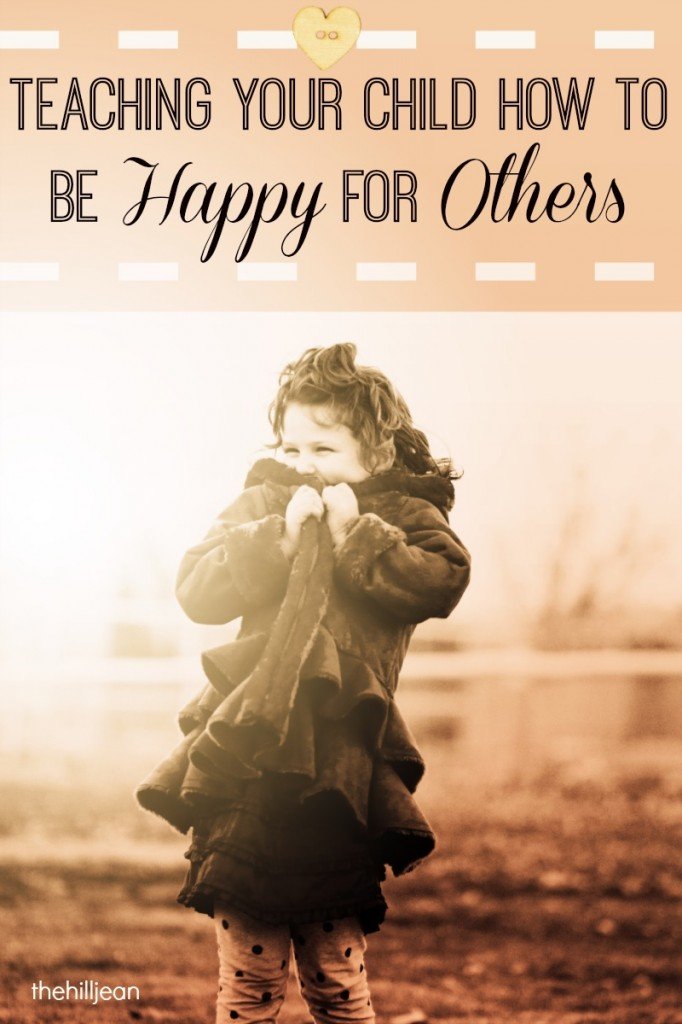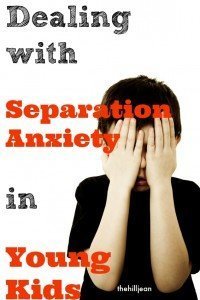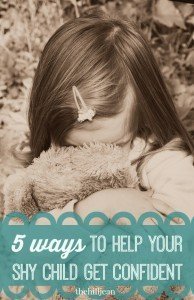If there is one thing that we parents want, it is for our kids to succeed. To shine bright. To be the best they can be. There are lots of articles and tips out there on ways you can help your child succeed.
But what about when someone else’s kid succeeds? What about when your child isn’t shining so bright, and the spotlight is justifiably on someone else?

No one wants to talk about this. It’s uncomfortable, a little sad, and we don’t want to admit that our kids can’t do everything. So everybody gets a trophy and we plunge them towards success. Blindly hoping that we’ll find that one area where they’ll dominate.
A few months ago, my pastor said something that I had never heard anyone say before. It shocked and embarrassed me. To paraphrase, he said:
“They say that you’ll know who your true friends are when bad things happen to you. But I don’t think this is true. You’ll know who your true friends are when good things happen to you, when you’re succeeding in life and things are going well. Because one of the hardest things about being a human is finding happiness in someone else’s success.” ~Erwin McManus
I know this is true for me. Its easier for me to be an active, loving friend to my friends who are in need. But my friends who are just amazing success stories? Well, sometimes they are hard to be around. Their happiness and success illuminates my discontent and failure. So its easier just to not hang out and wait for something bad to (finally!) come their way.
Don’t act like you don’t know what I’m talking about. Also, don’t worry, we’re not focusing on the adult aspect of this for long. But I wanted to point out that how we feel as adults in light of other peoples achievements is not so far removed from the feeling our kids have to deal with in their relationships.
At this point in life, Chaucer has it easier than Coco. Maybe its just for a time, maybe this will always be how it is.
Chaucer is fearless, extremely coordinated, and charming.
Coco is timid, slightly clumsy, and somewhat shy.
The bars are a huge obstacle for Coco in gymnastics. She has a full-on panic attack whenever her class has to work on flips. I’ve worked it out with the coach to give her more time because she is so afraid.
The other day at the park, Chaucer tried doing a flip for the first time on the bars. He landed it perfectly. Coco looked on with a crushed expression on her face.
As I cheered and clapped for Chaucer, Coco’s eyes filled with tears and she ran and hid.
When I found her hiding behind a tunnel, I pulled her tear-streaked face towards me and she blubbered:
“WHY is it so easy for Chaucer? Everything he does is easy for him! He’s only three! I’m five! Why is he better than me??”
What made this confession even more difficult was that Chaucer was stranding right there.
The fact that he could pull himself up, flip over, and land on his feet at three years old is a big deal. I’ve seen many other five and six-year-olds struggle with this. But like I said, Chaucer has always been incredibly coordinated. The kid started rolling over at nine days old, if that tells you anything.
He was proud of himself, and I was proud of him too.
But his happiness in achievement brought sadness to Coco. I was torn.
Its hard as an adult to accept that I cannot be good at everything I do. I can be good at some things, and maybe really good at a few things, but there is always someone else who is doing it better than me.
This sucks. However, if my happiness is contingent on my success and other peoples failure in comparison then it might as well be a unicorn. I’ll never see it.
I had to explain this to Coco. I had to tell her that she won’t be able to be amazing at everything she does. Some things will be very hard for her. But there are things she can do so well that bring happiness to others. And this is what we focused on.
The challenge as the parent is to not help your kid make side-by-side comparisons of themselves and others. You don’t want a nasty child who measures everyone against themselves, and feels better because they can one-up someone who struggles in some area that they don’t. No one wants to be around that. It’s obnoxious and joy-sucking.
How do we teach our children to respond appropriately to other people’s success?
1. Teach them to be grateful.
The best way to combat jealousy is with gratitude. The root of jealousy is truncated when you stop thinking about what you’re entitled to, and focus on all the glorious things that you were freely given. It’s an old adage, “Count your blessings,” but it really works.
If you’re not familiar with Ann Voscamp then maybe you’re living under a rock. So climb on out and familiarize yourself! Anyways, she has a great post on how to Teach Kids To Be Grateful. She lists fifteen super easy, tangible things that we parents can do to engrain gratitude in our children.
2. Teach them that happiness comes from bringing happiness to others.
It’s not rocket-science. And as parents, we should not be surprised by it. After all, aren’t we most happy when we see our kids happy and enjoying life?
We have to teach our kids that their happiness comes from bringing happiness to others. My friend Chris, over at The Mom Cafe has an amazing story about her daughter who struggled profoundly in swim team. I love what happened in this story and how her daughter was able to just shock everyone with her strength and sweetness of character. This is the kind of girl I want Coco to become.
3. Teach them to identify both their strengths and weaknesses.
They ask you this in job interviews, right? Why shouldn’t we teach our children to be honest with themselves. Having this information will not hurt them if we use it as a way to grow. Remember the difference between a fixed and growth mindset? Yah, it comes in here too.
It’s important to cultivate a healthy confidence in our kids. We want them to take pride in things they do well. It’s our job to help them find it.
- We should praise them for things they do well.
- We should praise and encourage them in things they don’t do well.
- We should praise other people in front of them so that they learn to recognize and be happy for other people’s achievements.
What is challenging about all of this is that we have to cultivate it in ourselves first. I never knew raising children would be so convicting for my own soul.
If you would like to weigh in on this, please do so in the comments. I’d love to hear how you’e handled this as a parent, and as a person.
This is the conclusion of our Lasso the Moon series, and if you want to catch up you can click these images to read the previous posts!



I was JUST talking to a friend about this last night. It is such a hard, hard lesson for kids to learn, and you presented this so well, hitting the key points we need to pass on. Thanks for sharing this, Hillary–so timely for what we’re dealing with with our own kiddos!
Hillary, I have gone through this over the years with my daughter- now 14. She struggled (and still does a bit) with reading. When she was eight she broke down in tears because it just “wasn’t fair”. That’s true I told her, and this is a lesson we all learn over and over. Life isn’t fair, and helping our kids understand and accept this is part of our jobs. The most significant way we can do this is by modeling the kind of behavior we say we expect from them. As parents we can talk until (inset your favorite metaphor) but unless we act in ways that make our words authentic it won’t matter.
I think our culture wants to pad the way of life by making everything fair, when, like you said, life isn’t fair. Its a good lesson to learn early and it doesn’t have to make us bitter. It’s all about using it to live life more fully. But yah, the responsibility is on the parents to live this out. Oh boy!
It’s so refreshing to see someone notice this Hillary. It’s so irrational to teach our kids that everything should be fair or something similar to that, but yet I see it all around me. For us it’s always honesty with our kids and setting an example and taking the time to teach our children, especially in this way. Attitude is everything. For an example that’s not necessarily related to being happy for others: we hunt, we talk to our daughter about it (she was two the first time she saw a dead animal). She was a bit nervous, but I showed her how I’m not scared and explained things to her then and as she got older. Even from that very young age she could learn not to be scared of any part of the dead animal and also began to learn respect for it…Why we hunt, what animals we can hunt, general hunting ethics, what we do with the meat. I feel like this is a good example because she’s so mature about it now (at five) and always has been. My attitude showed her, my words reached her. It shows that even the youngest child can learn and mostly it was my example of how I carried myself in a given situation (as with others). And I think a lot of us don’t think about things like being glad for others. This has never been a problem for us. But we are good examples as adults that way, being glad for others is just always a part of our life, it’s normal. And if you can be that as an adult (I know a lot of us get caught up in the adult world) you can worry less about your child.
Great post! We deal with this a lot on both ends! It’s tough because Tae is suuuuuper athletic and is quite often one of the best. But when he isn’t, he can’t handle it. But it’s been a great process to have to tell him that he is not always going to be the best and there will, without a doubt, be others that do things better than him. He will not always win. And that’s okay. We try to tell him this before basketball games or things he’s trying for the first time which is particularly hard for him because he thinks he should be able to try something once and be the best. Welcome to life buddy, it doesn’t work like that! We also talk about it between brothers and how the should love and support each other and it’s okay if the other can do it better. It doesn’t make them less of a person if they don’t do something the best. We also are trying to cut out saying little comments that might not directly say it but are meant to make yourself feel better about yourself by making others feel bad. I hate that! Anyway, it’s all a huge process, but great post and so glad you wrote about it!
Thanks, Natalia! Yah, there is the whole flip side of dealing with a really talented kid. You don’t want to end up with an egotistical jerk, and so you have to temper it with humility. I think either side of the coin is hard to handle. But like you said, welcome to life haha
[…] there are any issues between our children (like what I talked about here) we need to have a safe place for them to discuss it. I love what Dr. Tim Kimmel says about […]
Love your insight, I am a 67 year old grandmother and appreciate your sharing such important information and thoughts.
Such an important subject! I think there is enormous value in teaching children to be happy for others. Thanks for posting!
My sister and I are like your children. My sister made friends easily but had a hard time in school. I was what my mom calls “an old soul” and had a hard time making friends but grades were easy. Though it wasn’t always easy to not be jealous of my sister, we have grown to be best friends and can recognize each others talents and help each other where we can. We are living proof that kids can and do grow up to be best friends when parents teach the hard lessons. Life isn’t fair, but god gave me a sister to help me, and I her. We are happiest when it’s the blessings we count!
Do you know that Cass and Cade are EXACTLY like your kiddos? Cade can do ANYTHING well- just like your little guy. And Cass has struggled all her life! Cade- oh that boy. EVERYTHING comes easy to him. (Rode his bike at three- while we were still teaching Cass how to ride it at almost six- He begged to give it a try and rode off into the sunset without ONE LICK OF HELP.)
Wow! That is crazy in the similarities. I’m going to share that verse with Coco next time this comes up. Thank you for sharing your wisdom and experiences here!